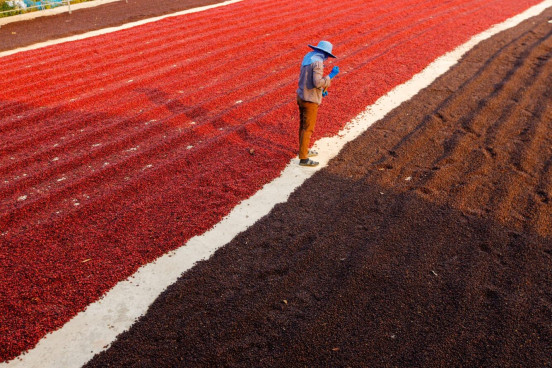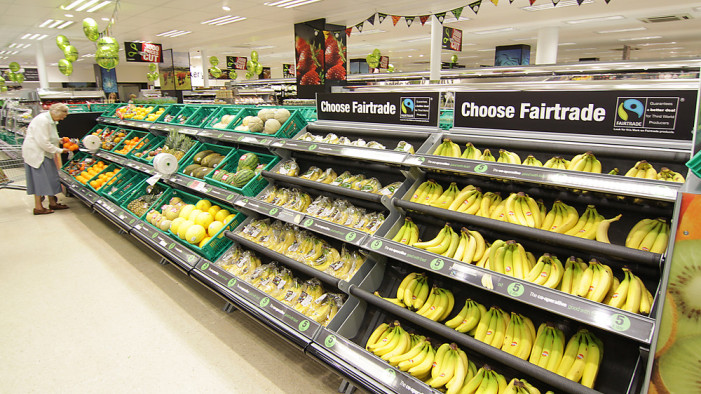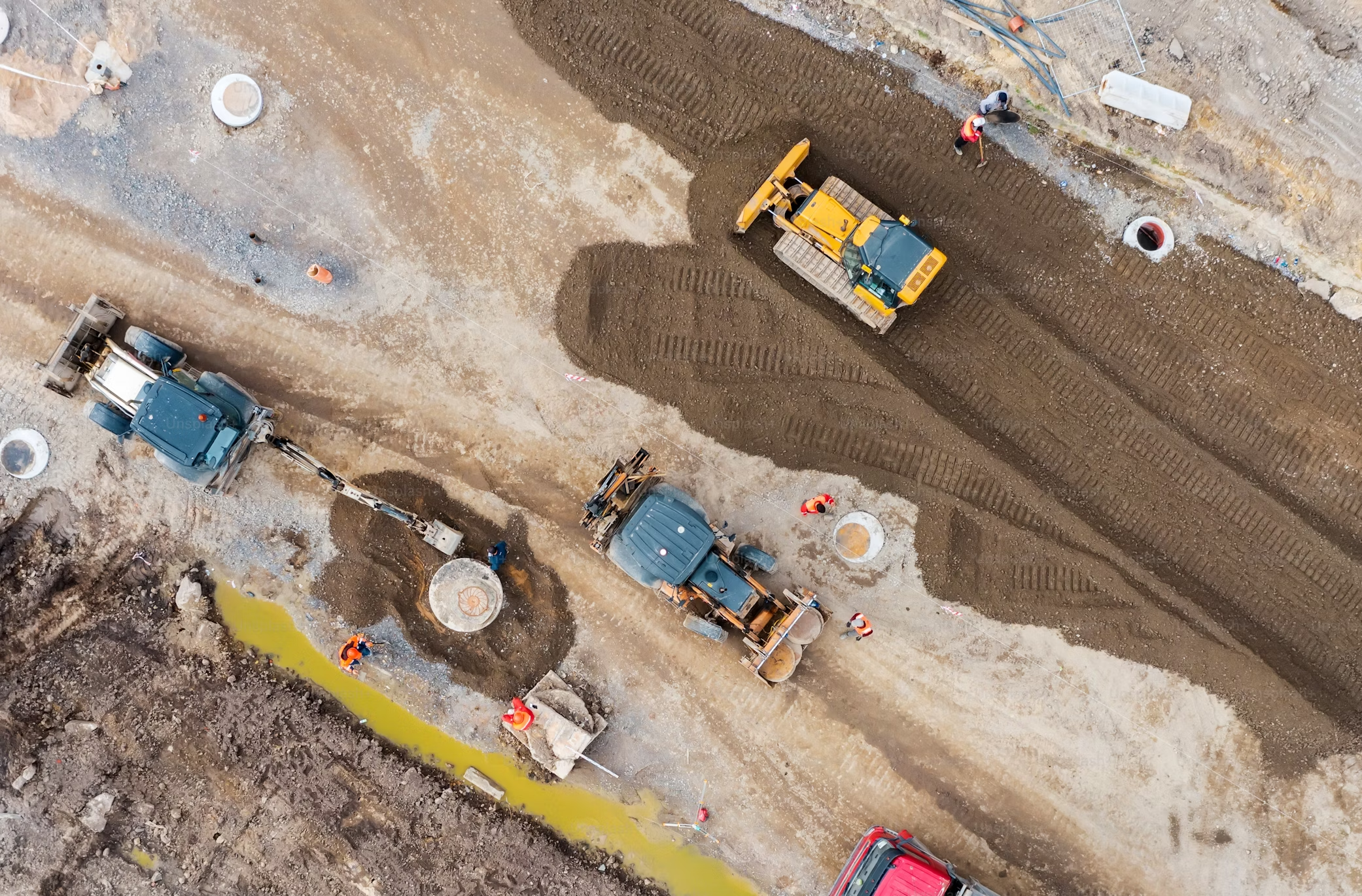Q&A ABOUT THE CSR RISK CHECK

The CSR Risk Check is an online tool to help identify CSR risks free of charge. Next year, the tool will be ten years old. We have asked project manager Marieke de Jong from MVO Nederland her German college Caroline Zamor from UPJ about its use and user demands. And most importantly, how companies could prepare for the EU Commission's proposed directive for a European supply chain law.
The CSR Risk Check was developed by MVO Nederland and is funded by the Dutch Ministry of Foreign Affairs. The German language version of the CSR Risk Check is funded by Agency for Business and Economic Development (AWE) through the Helpdesk on Business & Human Rights and implemented by UPJ together with MVO Nederland.
Can you tell us how the CSR Risk Check has helped companies in practice?
Marieke: The reasons and purposes for using the tool can differ a lot per company. A Belgian clothing company told me that they use the CSR Risk Check before choosing new sourcing locations for their production, amongst others. Another example that comes to mind is a company that gave a report from the CSR Risk Check to a colleague, who was visiting sourcing partners in different countries. He used the report as a starting point to talk about risk management.
Caroline: Many companies use the CSR risk check to get a first overview over what risks they potentially face in their supply chains. A globally operating fruit and vegetable company for example uses the risk check regularly to not only assess suppliers but also their own farming facilities. Other companies use the CSR risk check for their baseline risk analysis to prepare for the German due diligence law.
The online CSR Risk Check tool is almost ten years old. How do you look back?
Marieke: The tool has changed and evolved a lot in ten years. The biggest achievement I would say is the vast amount of information we have gathered over the years. Looking back, it becomes clear that the topic of business and human rights is much more alive nowadays than it was ten years ago.
Caroline: The German version of the CSR Risk Check is actually five years old. The steadily increasing user numbers show that the tool has become more and more important. We work on keeping the risks and advice in the CSR Risk Check up to date and to maintain a high quality. We also focus on making the reports more specific and tailored to the individual products and countries. In certain areas this is still a challenge, due to a lack of available data.
What current challenges are you facing working on the CSR Risk Check?
Caroline: The biggest challenge I would say is data availability. It is relatively easy to find studies and reports about child labor in cocoa farming in West Africa or about the working conditions of textile workers in Asia. These fields are widely researched. But there are other industries that are important industries for the German economy, such as mechanical engineering, but where we lack relevant data. As those supply chains are quite complex – containing many different materials or compound materials – it is harder to specify and allocate risks and to find research about those risks.
Marieke: This also requires knowledge and awareness on the part of companies using the CSR Risk Check. It is important to know what to look for when using the CSR Risk Check. We notice that a lot of people are searching for the countries where their closest supplier is located. However, the raw materials within the products often come from a very different location. The distinction between fabricated product and its raw materials has to be made.
What advice do you have for companies that want to prepare for the upcoming European supply chain law?
Caroline: I would say, get started now! In my opinion it is better to act than react. Many German companies are not directly affected by the German due diligence law, but indirectly affected as they are part of the supply chains of larger companies that fall under the scope of the law. Thus, they might be required to already get the right processes in place.
Marieke: I am on the same side as Caroline. In my opinion it does not matter if you act because you are obliged to by the German or European legislation or without it; there are many advantages of knowing more about your supply chain and your partners in that supply chain. Just get started and take small steps forward, as is also explained in the Roadmap to CSR risk management.
How is the tool evolving? As user numbers increase, are there new requirements for the tool?
Caroline: I think it is important that the tool stays up-to-date and therefore relevant – especially looking at what lies ahead for companies. As user numbers are going through the roof and users become more interactive and get in touch with us, they tell us about their needs. We are working on meeting those needs and finding answers and solutions. To name one example, we conduct specific research for industries such as mechanical engineering or the digital industry where the focus lies on the downstream supply chain rather than the upstream one.
Marieke: In as much as the tool has evolved over the last ten years, it will also keep evolving in the future. New events like new legislation around supply chains ask for companies to adjust, but also for us to adjust and develop the CSR Risk Check in response to these new requirements. We are excited for what the future will bring!
More articles

Webinar Recording: Discover the CSR Risk Check
In our webinar on 12 November 2025, we explored the latest updates of the CSR Risk Check. The session explained how the tool has been expanded, how it incorporates perspectives from the Global South, and how it can support companies preparing for upcoming European supply chain legislation. If you missed it, you can watch the recording below!

Webinar: Discover the CSR Risk Check
International chains are under increasing pressure from new European legislation. From the Green Deal to the Critical Raw Materials Act, there is a growing expectation in more and more sectors that companies make their chains transparent and responsible. This requires due diligence. In this webinar on November 12, from 3:00 to 4:30 PM CET (UTC+1), you will discover how to use the CSR Risk Check to gain insight into the main risks in your chain.

Navigate the Hidden Costs of Minerals and Metals with the CSR Risk Check
Solar panels, wind turbines, and electric vehicles are driving the energy transition, but behind their promise lies a hidden reality. Meeting the demand for minerals and metals needed for the energy transition often comes with serious risks for human rights and the environment. To help you identify and address these challenges, the CSR Risk Check has been updated with new product categories and improved information on transition minerals.